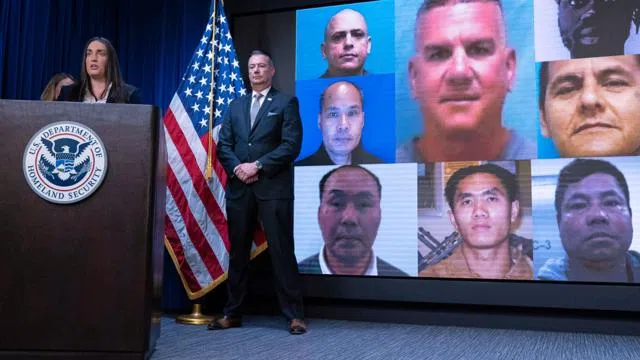Eight men deported from the United States, including two with ties to Nebraska, arrived in South Sudan on Friday after a six-week legal battle that reached the U.S. Supreme Court. The men had been held at an American military base in Djibouti since May before their transfer was allowed to proceed.
One of the deportees, Nyo Myint, a Burmese national, previously lived in Lincoln. He was accused in 2017 at age 44 of sexually assaulting a 26-year-old woman with diminished mental capacity, who later became pregnant.
Another deportee, Dian Domach, was the only South Sudanese national among the group. Domach came to the U.S. as a refugee in 1999 when he was six years old, settling in Nebraska with his family after fleeing Sudan through Ethiopia. In 2013, he was convicted of armed robbery at a U-Stop convenience store in Lincoln.
Family members have expressed concern about Domach’s future in South Sudan, a country he has not seen since childhood. “It’s a war-torn country right now,” said his wife, Patricia Domach. “Even though he’s a grown man, anybody would be afraid to go to a place that he hasn’t been to.”
The U.S. State Department currently advises against travel to South Sudan due to risks of crime, kidnapping, and armed conflict as the nation faces continued instability.
The group of deportees also included men from Cuba, Laos, Mexico, Myanmar, and Vietnam. Homeland Security officials stated that the men had been convicted of violent crimes in the U.S., with most having completed their sentences or nearing release. “This was a win for the rule of law, safety, and security of the American people,” said Homeland Security spokeswoman Tricia McLaughlin in a statement announcing their arrival in South Sudan.
Initially, the men’s flight in May was diverted to Djibouti after a federal judge ruled the administration had violated his order by failing to allow the men to challenge their removal. They were held at a military base in an air-conditioned shipping container during the legal proceedings.
The Supreme Court’s conservative majority ultimately ruled that immigration officials could quickly deport individuals to third countries, halting previous court orders that allowed challenges to such removals. On Friday, the original judge overseeing the case concluded that the Supreme Court ruling had tied his hands, allowing the deportations to proceed.
Immigration and Customs Enforcement officials confirmed the men had final orders of removal, and U.S. authorities maintain agreements with certain countries to house immigrants if deportation to their homeland is not immediately possible.


















Comments